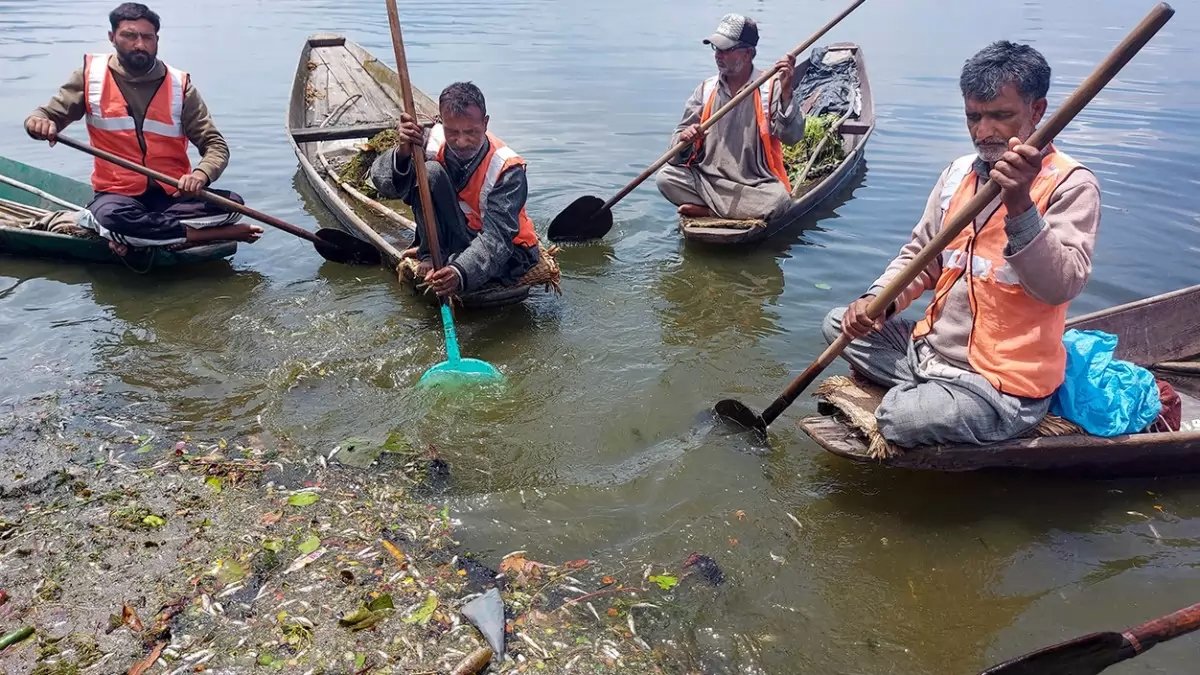The report by the J&K Pollution Control Committee has laid bare the grim reality of Dal Lake’s deteriorating condition. It is shocking and disheartening that despite the expenditure of thousands of crores on Dal Lake conservation, water from nearly 910 houseboats continues to be discharged into the lake without treatment, contributing significantly to the pollution that threatens this iconic water body. The NGT has rightly taken serious note of the situation, but the urgency of the crisis demands more than just acknowledgement-it requires immediate and decisive action. Dal Lake is not just a natural treasure; it is a cultural and economic lifeline for the region. Its serene beauty draws tourists from across the globe, providing livelihoods to thousands of locals. However, this vital resource is being choked by pollution from untreated sewage, urbanisation, and mismanagement.
The JKPCC’s report, which reveals that only one out of 24 tested locations in the lake conforms to Class B criteria for water quality, is a stark indicator of how dire the situation has become. This not only undermines efforts to restore the lake’s health but also poses a significant threat to aquatic life and the overall ecosystem of the region. The high concentrations of harmful bacteria in various parts of the lake, particularly near Hazratbal and Konkhan Intermediate Pumping Station, are alarming signs of an environmental disaster in the making. The NGT has issued directives to the relevant authorities, including the J&K Lake Conservation and Management Authority and the Deputy Commissioner of Srinagar to take immediate corrective measures. However, a more comprehensive and sustained approach is needed. This should include stricter enforcement of pollution control regulations, upgrading and expanding the capacity of STPs, and implementing advanced waste management systems for houseboats. Failure to act now will result in irreversible damage to Dal Lake, with devastating consequences for the environment, the economy, and the cultural heritage of Jammu and Kashmir. It is not just about saving a lake; it is about preserving the soul of Kashmir.
Trending Now
E-Paper


